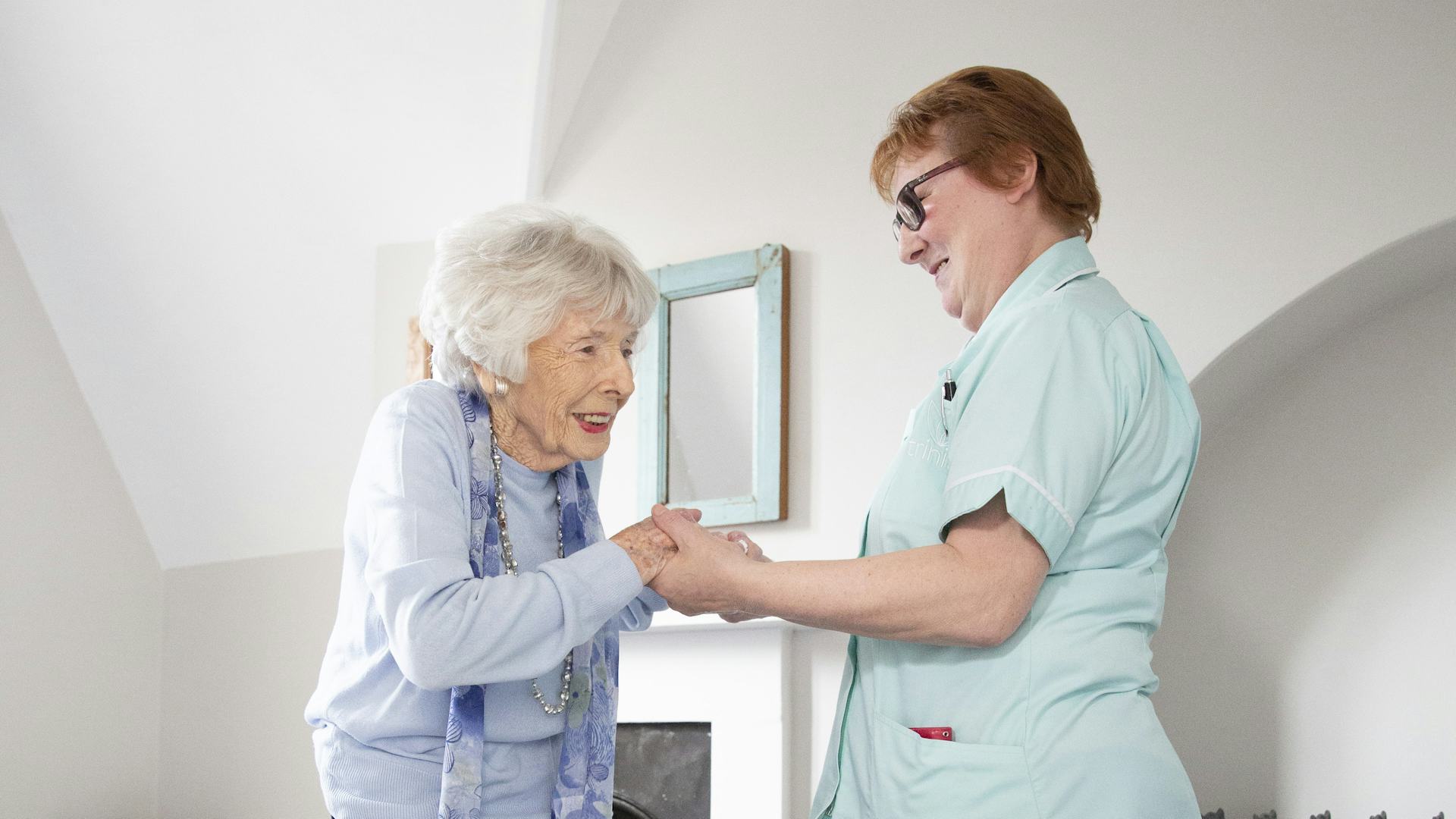| Previous Page: Skills and training | Next Page: How to become a carer |
|---|
Qualities of a good carer
It takes a certain type of person to be a carer. Regardless of the skills and knowledge that can be acquired through training courses, caring requires certain qualities which come more naturally to some more than others.

Who makes a great carer?
Most people who apply to become professional home carers have at some previous experiences in care, whether that be voluntarily looking after a loved one, or limited experience in a regulated care setting such as a care home. Others simply have an innate desire to help people.
Experienced care agencies and companies understand that needs vary greatly from client to client and will match the personality and preferences of the client with a likeminded carer.
Any able adult can be a great carer. Someone straight out of school or someone who is looking for a rewarding vocation in retirement can help support vulnerable adults live well at home.
Caring
It may be obvious, but a great carer must have and be able to show compassion. Care can often be as difficult as it is rewarding. A good carer must genuinely be able to care about a client and their wellbeing.
Respectful
A good carer will be able to connect with their clients in a way that helps the client maintain a sense of independence. They always remember that their client is a person who has seen and experienced a lot in their lifetime and always treat them with respect and dignity.
Reliable
Many carers will be responsible for ensuring that their client eats and drinks enough throughout the day. They may also be responsible for prompting them with medication and attending appointments on time. The effects of not doing these things can be dramatic and negatively affect the individual’s wellbeing. A good carer will need to have impeccable time keeping and most importantly, remember their duty of responsibility for their client should they suddenly need their assistance.
Empathetic
Becoming older or living with an illness or disability can be a difficult process for most people. Everyday tasks become a challenge and so a good carer will understand the frustrations a client can feel and will emotionally support them through this.
Cheerful
The best carers are those who can light up a room when they walk into it. Many older people and disabled adults may suffer with depression or lower moods, and a carer who mirrors this can sometimes make things worse.
Observant
The physical and mental health of an elderly person or someone living with an illness can change dramatically and without warning. Observant carers will pick up on these signs of change early. Decreased appetite, weight loss or gain, increasing confusion, increased irritability and even unexplained outbursts can indicate the start of a possible condition. A good carer will observe changes and be able to handle the situation confidently.
Practical
Carers will often find themselves helping with a variety of activities, such as bathing a client, helping them using the toilet or getting them dressed. A good carer identifies that these practical tasks are necessary to support the client live a happy and independent life and isn’t squeamish at the sight of bodily fluids or functions.
Other soft skills include:
- Sensitivity and understanding
- A desire to help people
- The ability to work well with others
- Patience and the ability to remain calm in stressful situations
- The ability to accept criticism
- Attention to detail
- Excellent verbal communication
- The ability to carry out basic tasks on a computer or handheld device
Our next section talks through how to apply to become a professional home carer, which company to choose, and detailed information about the interview and application processes. Download our complete Guide to Becoming a Carer for free. Everything you need to know about becoming a carer in one handy pdf which you can print out or read digitally.
| Previous Page: Skills and training | Next Page: How to become a carer |
|---|








